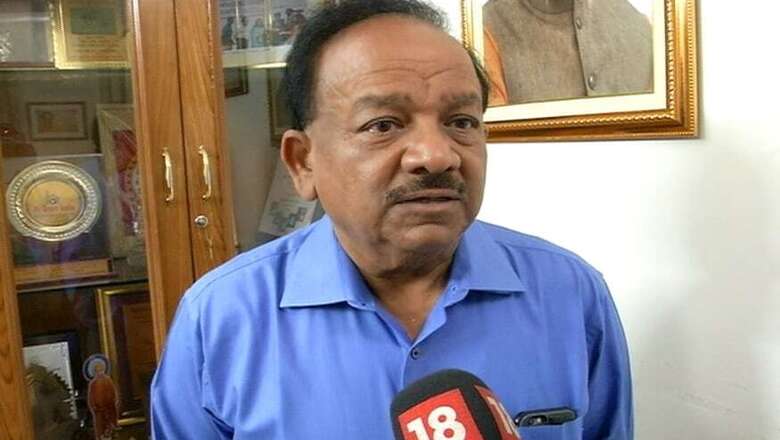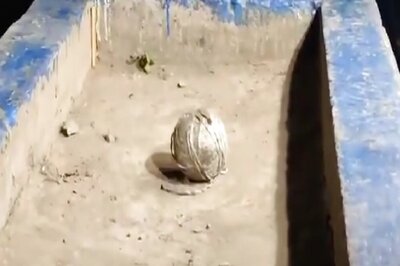
views
New Delhi: Environment Minister Harsh Vardhan on Friday sought to blame the previous UPA regime for issues related to Vedanta's Sterlite Copper unit in Tamil Nadu's Tuticorin and asserted that his ministry would look into the matter after 13 people were killed during protest against the expansion of the plant which, they alleged, was causing groundwater pollution.
Amid allegations of environment pollution at the unit, sources in the ministry said the Central Pollution Control Board (CPCB) had sought a report on the matter. The minister also said that he had asked his officials to study the issue "with seriousness and in-depth".
The Environment Ministry sources said that since there had been agitation and protests, either the district collector or somebody else should have had some consultations.
The protest over Vedanta's Sterlite Copper unit took a violent turn recently when stones were pelted by agitators and police vehicles were toppled after they were prevented from marching towards the plant. At least 13 people have been killed in police firing during the protests, evoking criticism from various political sections.
"I have just returned in the morning and I have read something about it in the newspapers. We will certainly look into what is really happening. All this has happened in the tenure of the last government."
"But I do not want to get into that. We do not want to make an issue out of it. We do not want to talk about the nitty-gritty of it right now," Vardhan told reporters here.
Tuticorin district has been witnessing several protests by locals and others against the plant and its proposed expansion and protesters have alleged that the plant was polluting groundwater in the area.
"In a society, people do agitations and protests and I am not saying against or for it. I am just saying that after coming, I immediately told officials to understand the issue in depth and with seriousness."
"All that I have said here is factually correct and when you go into the details, you will be convinced," Harsh Vardhan said.
The Environment Ministry sources said that there were three expansions of different capacities in the unit — first is 2004, second in 2007 and third in 2009, and there has been no expansion since 2009.
The only other communication issued from the ministry was in 2016 which was a "routine technical communication", the sources said.
Elaborating about the process, one of the sources said when environmental clearance was granted in 2009, it was valid for 10 years.
"So the unit is expected to complete the expansion within ten years. If you do not complete the expansion in ten years, you have to apply afresh and seek fresh approval. Approval for that ten years is granted in two parts.
"First seven years is in auto mode. As soon as the seventh year finishes, the company approaches the ministry saying that the expansion is till on so an additional three years approval is sought. So that 2016 communication from the ministry is that three of the ten years. So there is no expansion, it is only continuation," the source said.
"The current situation is that they (the company) is unlikely to complete their expansion. Therefore, they have already put in an application for a fresh Terms of Reference (ToR) and so the whole process will go on afresh," the source said.
The ministry has also sought a report from the district collector and Tamil Nadu Pollution Control Board. "When they applied afresh, we sought a report from the collector and Tamil Nadu Pollution Control Board. That has already happened. The report has not come as yet," the source added.
Centre for Science and Environment (CSE) had also condemned the recent killings of protesters.
In a statement recently, CSE had said that the 400,000-tonne-capacity smelting plant of Sterlite had been at the centre of pollution controversy since it was proposed in 1995.
This plant was rejected by three states Gujarat, Goa and Maharashtra because of its highly polluting nature, before it was allowed to be set up in Tamil Nadu, the CSE said.
While taking environment clearance (EC), the company had flouted norms by misrepresenting facts and giving a faulty Environmental Impact Assessment (EIA) report, it had said.
CSE had said Sterlite stood as a classic case of failed environmental governance. Years of violations and concerns raised again and again by residents of the area seemed to have mattered little.



















Comments
0 comment